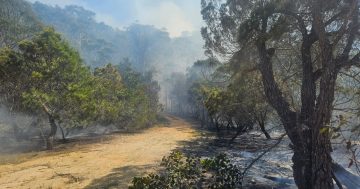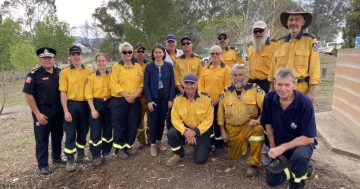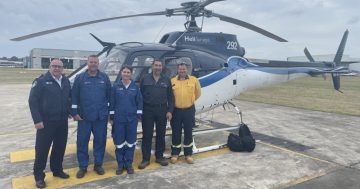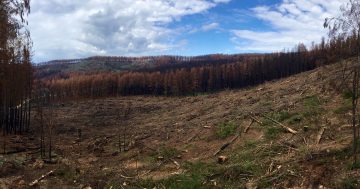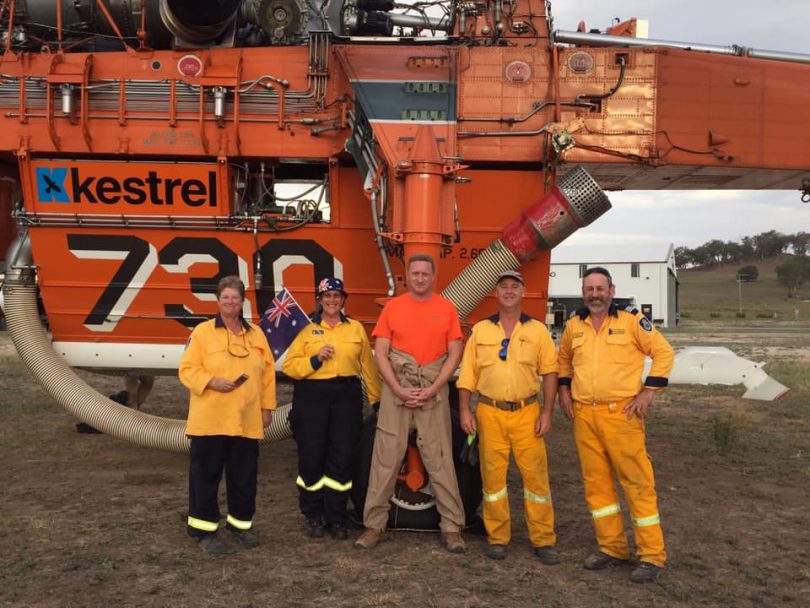
Danielle Brice, second from left, with regional RFS volunteers at Tumut airbase on January 26. Picture: Far South Coast Aviation group Facebook page.
After a week of widespread electrical storms, local Rural Fire Service members have been divided – some travelling to nearby communities to help where larger fires have taken root and others staying put to keep an eye on local forests, still at risk despite plenty of recent moisture.
“There’s a lingering risk with electrical storms – sometimes you’ll get a windy hot day a week later and something flares up,” says John Cullen, Rural Fire Service Manager for the Bega Valley and the Eurobodalla.
The Snowy Monaro’s District Officer, Fred Nichols reports that while there has been some rain with recent storms which has kept higher elevations wet, it’s not enough to dampen the threat of bushfire.
“The combination of dry grasslands and 35-40 lightning strikes around Cooma and Berriedale means that the more volunteers we can keep local, the better everyone feels,” says Nichols.
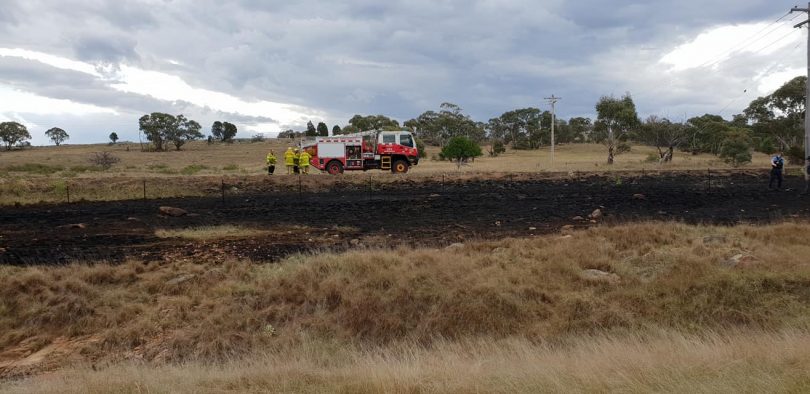
The Monaro’s grasslands are still dry enough to be a fire hazard, warns Monaro’s District Officer for Cooma Fred Nichols. Picture: Monaro Team Rural Fire Service.
It would take another solid inch or two of rain to mitigate the current threat, Nichols adds.
In Tumut, the Possum Point Fire is being fought hard from the air and aviation crew and radio operators from the Bega Valley and Eurobodalla are on site, with a strike team standing by.
Danielle Brice of Tuross and Ben King and Tamsyne Harlen, both of Bega, are all part of the Far South Coast aviation and communication unit and returned from five days in Tumut on 31 January.
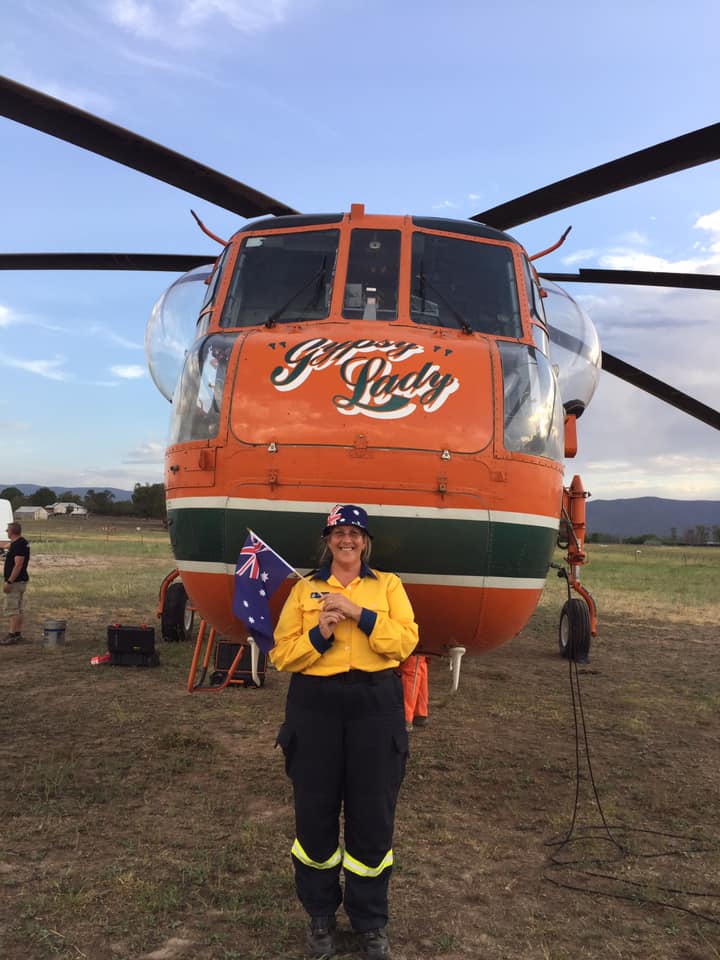
Rural Fire service volunteer Danielle Brice, of Tuross, stands in front of an Erickson Aircrane at Tumat airbase on Australia Day. Picture: Far South Coast Aviation facebook page.
Brice has traveled out of district “at least 10 times” in the eight years she has been in service to the RFS.
“We do a lot locally as well,” Brice says “but being part of the RFS means assisting other agencies and communities where needed – even overseas.”
Many people who imagine volunteering with the RFS think of boots on the ground, but a range of skills are needed. Price, with her background in communications with the federal police, is a sought after aviation radio operator.
“We had eighteen aircraft in Tumut, including helicopters and water bombers and the air-crane, on loan from Sydney for a day. The air-crane has a capacity for 7,560 litres of water,” Brice says in amazement.
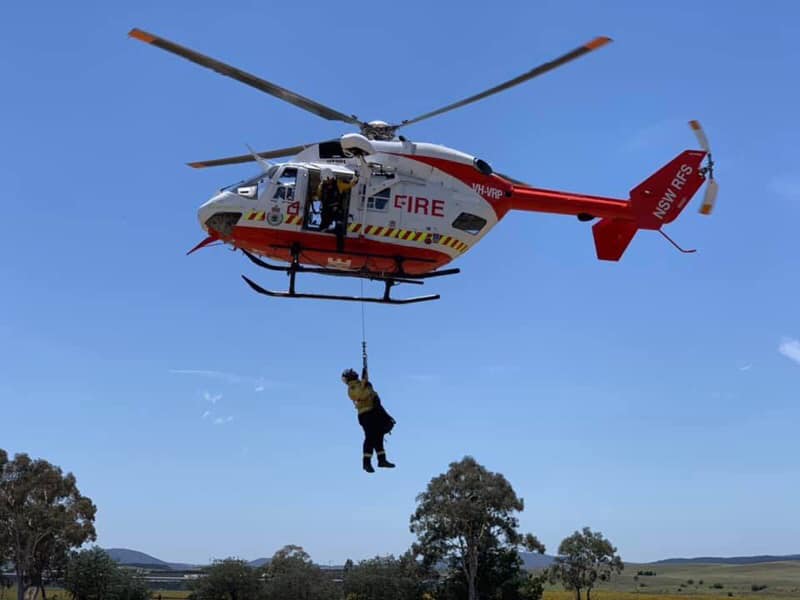
Fighting fire on rugged terrain means aviation specialist are highly sought after. Picture: Monaro Team Rural Fire Service facebook page.
Thanks to the efforts of Brice and her fellow volunteers, along with other agencies, the Possum Point Fire is now under control.
“We all [RFS] work very closely together,” says Cullen. “When there’s a need, we’ll go. You can get a lot of people to an area in three to four hours and we’re ready to send crews out just like adjoining districts sent help to us when we had the Yankees Gap and Tathra fires last year.”
Two RFS members from the Bega Valley departed for Tasmania in January, a state which is currently fighting 28 bushfires.
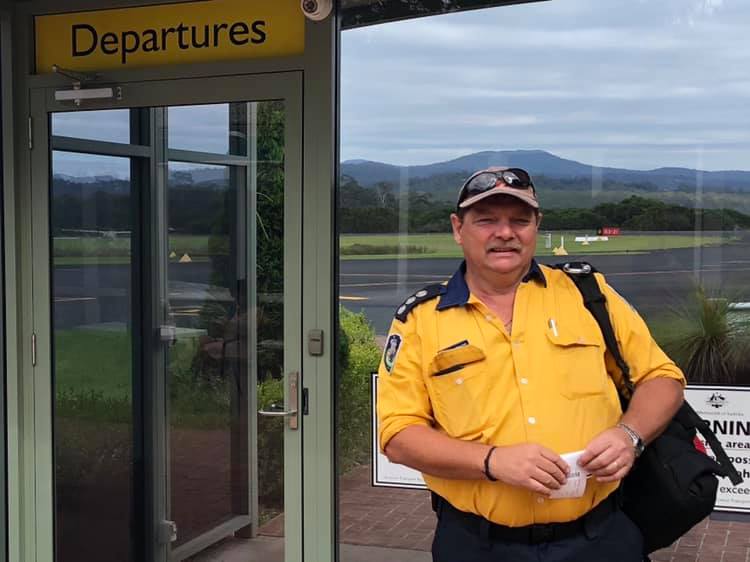
Peter Reynolds departs Merimbula for South Western Tasmania on January 19. Bega Valley Rural Fire Service Facebook page reports that Reynolds will be part of the 24 member team “Charlie” and will be the third rotation of firefighters deployed down south this season. Picture: Bega Valley Rural Fire Service facebook page.
“There’s an open invitation to anyone with the skills to fight fire in rugged terrain to go to Tasmania at the moment,” says Cullen. “It’s pretty serious there at the moment, they’re battling bad weather and steep terrain.”
In the Bega Valley, the amount of rain accompanying storms has meant that three lightning-sparked fires – in Garfield [near Bemboka], South Wolumla, and Wyhndam Lane were quickly contained.
However, Cullen encourages everyone to be on the lookout for “anything unusual” and to be fire-aware in their actions.
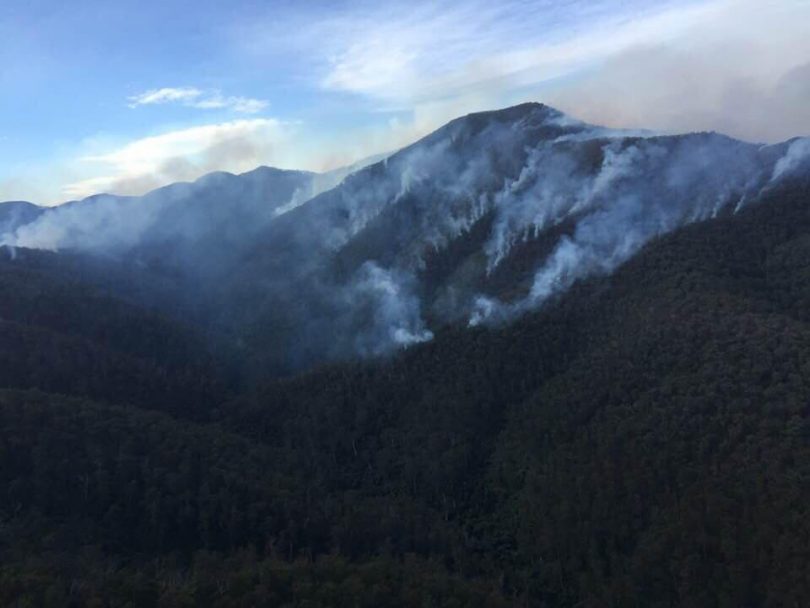
A view of the Yankees Gap fire, near Bemboka which burnt for over a month in August and September 2018. Picture: Bega Valley Rural Fire Service Facebook page.
“We’re sneaking out of January and across the Valley and in the Eurobodalla, it’s looking beautiful and green. But that being said, in March last year we had a major fire incident at Tathra,” warns Cullen. “It’s good to know we’ve got lots of eyes on it.”








